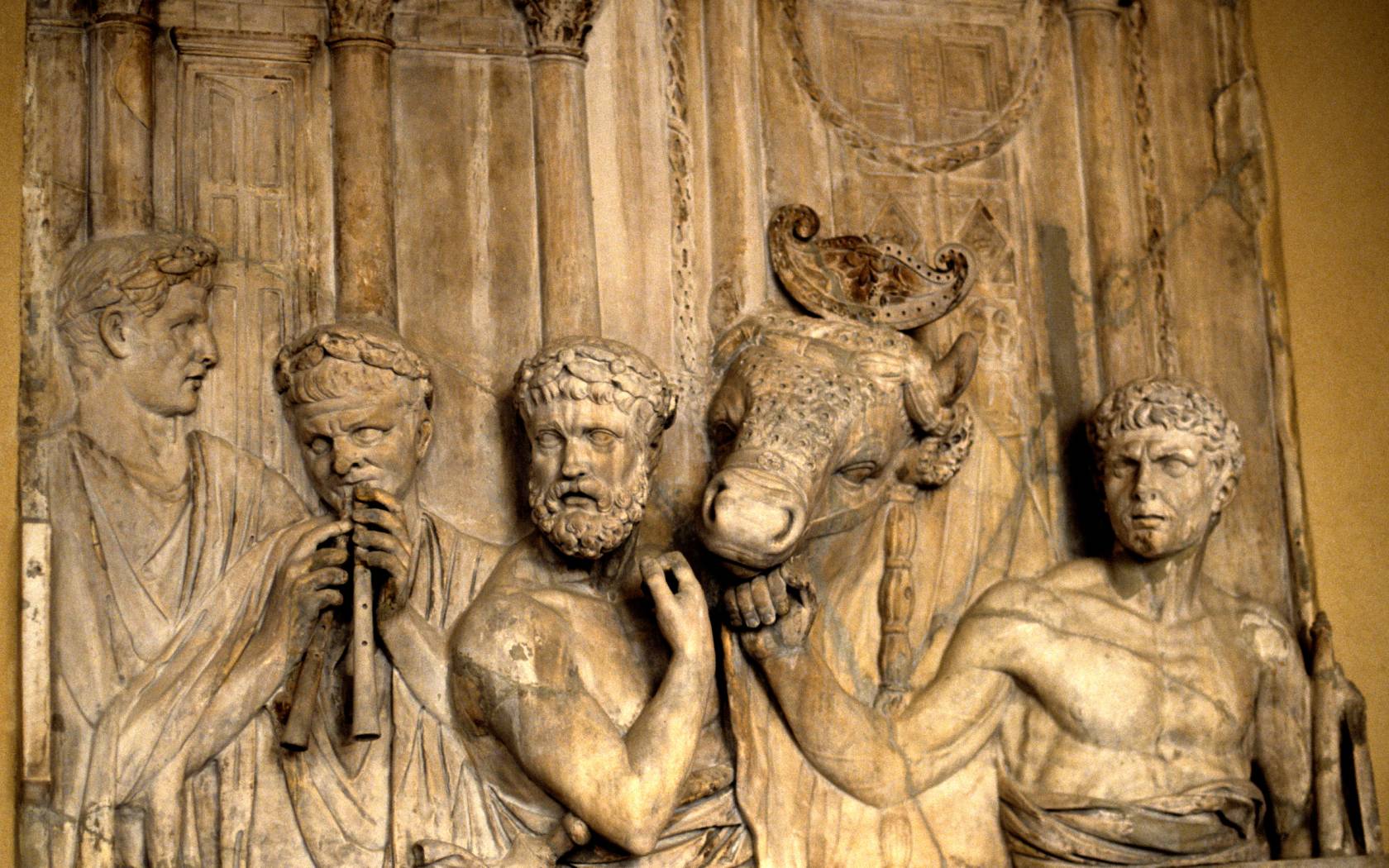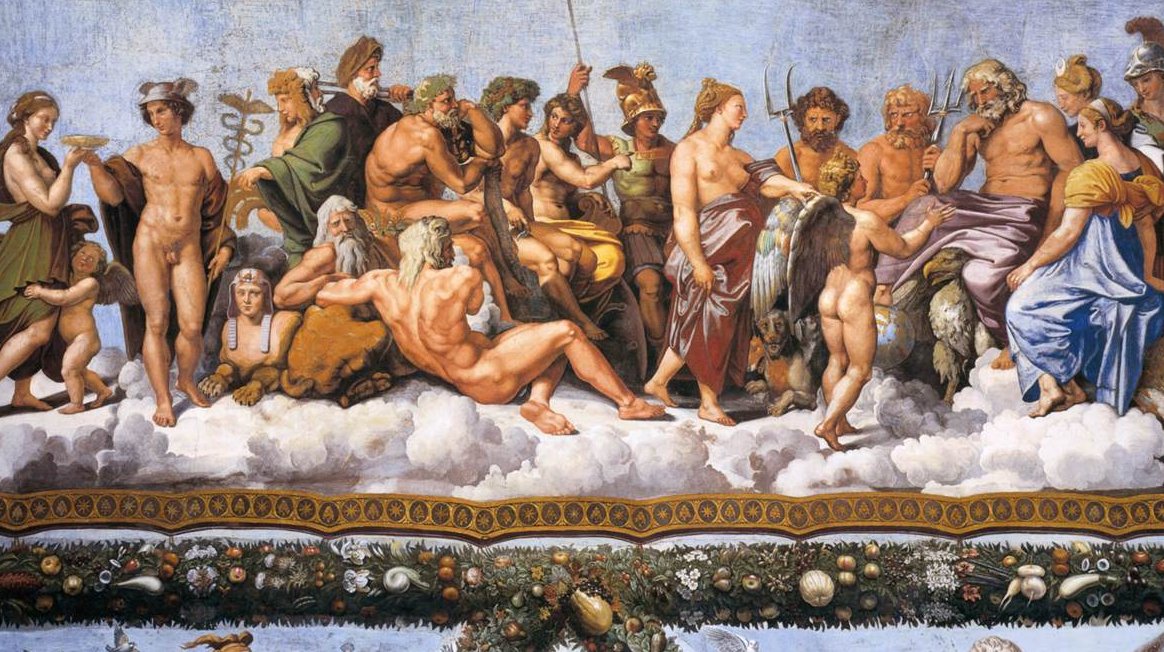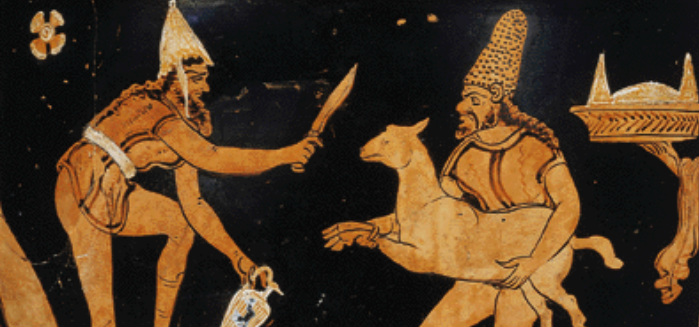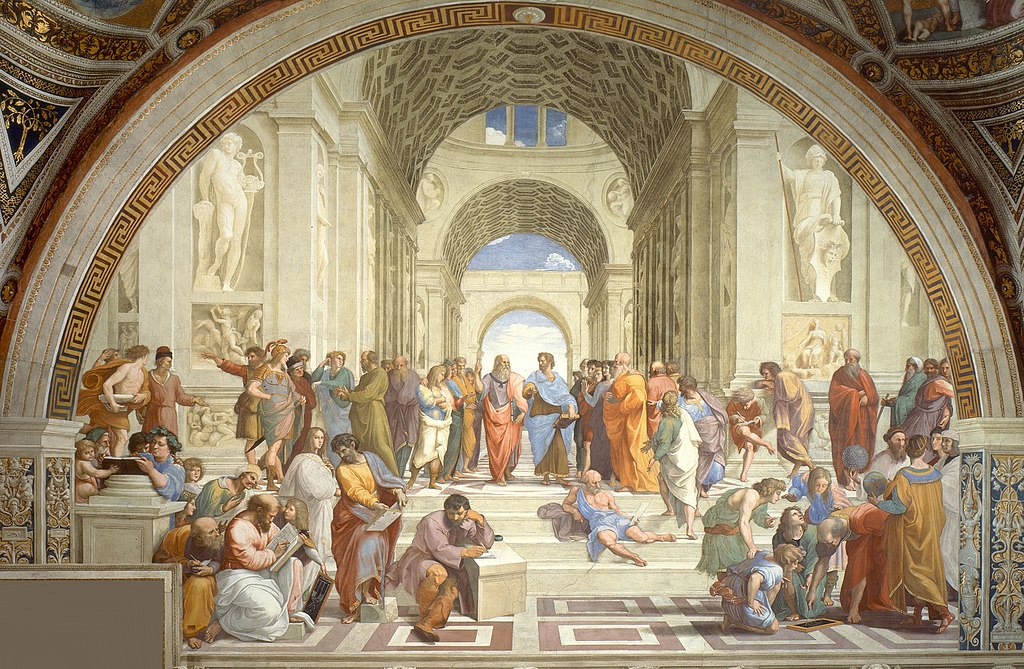In ancient Greece, religion was a vital component of everyday life, intricately woven into the fabric of society. The Greeks practiced polytheism, worshipping a pantheon of gods and goddesses who governed various aspects of the natural and moral world. This blog post will explore the rich tapestry of beliefs that defined ancient Greek spirituality, from the significance of oracles and temples to the importance of festivals and sacrifices. We will also examine the role of religion in daily life, the belief in an afterlife, and how traditional beliefs began to wane during the Hellenistic period. Join us as we delve into the fascinating world of ancient Greek religious practices and their enduring legacy.
Polytheistic Beliefs in Ancient Greece
In the ancient Greek world, polytheistic beliefs played a fundamental role in shaping the cultural and social landscape, as the Greeks believed in a multitude of gods and goddesses who governed various aspects of existence and nature, with each deity embodying specific attributes and responsibilities that influenced the lives of individuals and communities alike. These deities, such as Zeus, Hera, Poseidon, and Athena, were intricately woven into the fabric of daily life, with numerous myths and legends serving to explain the mysteries of life and the human experience, thus providing a shared narrative that fostered a sense of identity among the Greek people. Moreover, the ancient Greeks engaged in various forms of worship and rituals, including offerings and sacrifices, to appease these celestial beings and seek their favor in both personal and communal endeavors.
- The Greeks worshipped numerous gods and goddesses, each representing different elements of life.
- Rituals and sacrifices were integral to their religious practices.
- Festivals and temples dedicated to the gods were common across city-states.
The rich tapestry of Greek mythology underscores the importance of these polytheistic beliefs, as tales of divine interactions and human follies not only provided entertainment but also imparted moral lessons and reflections on human nature, creating a complex relationship between mortals and the divine that was both reverent and sometimes irreverent. Additionally, the Greeks viewed their pantheon not merely as abstract forces, but as anthropomorphic beings with distinct personalities and emotions, which enabled them to relate more intimately to their gods, often appealing to them in times of need or celebration, thereby creating a dynamic interplay between the human experience and the divine sphere. This personal connection to the gods was further enhanced by the belief that these deities could directly intervene in human affairs, either rewarding individuals with prosperity for their devotion or punishing them for their hubris and moral failings.
| Deity | Domain | Symbols |
|---|---|---|
| Zeus | Sky and Thunder | Eagle, Lightning Bolt |
| Hera | Marriage and Family | Peacock, Cow |
| Poseidon | Sea and Earthquakes | Trident, Horse |
| Athena | Wisdom and War | Owl, Olive Tree |
As the Greeks navigated their lives within the context of these powerful beliefs, the significance of their polytheistic framework not only informed their understanding of the world but also influenced their artistic expressions, political structures, and philosophical inquiries, reflecting a society that valued a deep connection to both the earthly realm and the divine. Thus, the intricate beliefs surrounding their pantheon established a sense of order and purpose, shaping the moral and ethical standards by which they measured their actions and aspirations, while also giving rise to a vibrant culture that celebrated the interplay between divine influence and human agency. In essence, understanding the polytheistic beliefs of ancient Greece provides profound insights into how religion not only guided personal actions but also defined communal identity, forging bonds that transcended the individual and fostered a collective sense of belonging within the society.

Gods and Goddesses in Greek Mythology
In the rich tapestry of ancient Greek mythology, the pantheon of gods and goddesses played a pivotal role, influencing not just the religious practices of the time but also the daily lives of the people who revered them, as deities such as Zeus, the king of the gods, wielded immense power and authority, shaping the destinies of both mortals and immortals alike. Among these divine beings, Hera, the goddess of marriage, and Poseidon, the god of the sea, stood out for their unique attributes and domains, representing various aspects of human experience and natural phenomena, with narratives woven around their exploits that both entertained and instructed the populace in the morals and values held dear by their society. Moreover, the gods and goddesses embodied the characteristics and flaws of humanity, providing relatable figures who engaged in love, conflict, and jealousy, thus reflecting the complex nature of human emotions through their divine archetypes.
| God/Goddess | Domain | Symbols |
|---|---|---|
| Zeus | Sky, Thunder | Eagle, Lightning Bolt |
| Hera | Marriage, Family | Peacock, Wedding Ring |
| Poseidon | Sea, Earthquakes | Trident, Horse |
| Athena | Wisdom, Warfare | Owl, Olive Tree |
| Aphrodite | Love, Beauty | Dove, Rose |
Over time, these gods and goddesses became deeply embedded in the cultural and religious fabric of ancient Greece, as various regions developed localized versions of the myths, creating a diverse but interconnected network of beliefs that celebrated their beloved deities through lavish rituals and artistic expressions. The significance of gods such as Hades, the god of the underworld, also illustrated the ancient Greeks' beliefs about life and death, emphasizing the importance of honoring the dead and ensuring a peaceful transition to the afterlife, while figures like Hermes, the messenger god, embodied the vital connections between mortals and gods, facilitating communication in their religious practices. This intricate relationship between the deities and the people paved the way for festivals, rituals, and offerings that not only demonstrated reverence but also reinforced the social order, illustrating the profound impact these divine beings had on the culture of ancient Greece. To summarize the essential elements of gods and goddesses in Greek mythology, here is a concise list of their roles and attributes:
- Zeus: King of the gods, representing authority and law.
- Hera: Protector of marriage and women, symbolizing familial bonds.
- Poseidon: Ruler of the sea, embodying the forces of nature.
- Athena: Goddess of wisdom and strategic warfare, inspiring knowledge and valor.
- Aphrodite: Deity of love and beauty, expressing the power and influence of desire.
Role of Oracles in Religious Practices
In ancient Greece, the significance of oracles transcended mere prediction, serving as a vital connection between the mortal world and the divine, as they were believed to offer insight into the will of the gods, enabling individuals, communities, and city-states to make informed decisions in both personal and public realms. Among the most esteemed oracles, the Oracle of Delphi stands out, where the priestess known as the Pythia would enter a state of possession, delivering cryptic prophecies that required interpretation and often shaped the course of various crucial events in Greek life, including warfare, colonization, and interpersonal decisions. This mystic practice not only defined spiritual life but also imbued the cultural landscape with a profound sense of reliance on divination and spiritual guidance, illuminating the inseparable bond between religion and daily existence. The functions and influences of oracles in ancient Greece can be categorized into several key aspects, which highlight their multifaceted roles in religious practices:
- Divine Communication: Oracles were seen as channels through which mortals could receive messages from the deities.
- Decision Making: Individuals and leaders sought the wisdom of oracles to guide their choices related to war, governance, and personal matters.
- Crisis Resolution: During times of uncertainty, communities would turn to oracles to seek clarity and direction.
In addition to these roles, the oracles functioned within a broader framework that included the ritualistic practices surrounding their consultations, such as the purification rituals undergone by seekers before approaching the oracle, or the offerings made in gratitude for insights received. The manner in which these interactions occurred often involved elaborate ceremonies and sacrifices, reinforcing the gravity of engagement with the spiritual realm and emphasizing the perceived power of these prophetic figures. Furthermore, the oracles were not solely for elite or powerful individuals; they catered to the general populace as well, creating a collective religious experience that unified communities emphasizing shared beliefs and collective destiny. The following table summarizes the characteristics and functions of some of the most renowned oracles in ancient Greece:
| Oracle | Location | Deity Consulted | Key Features |
|---|---|---|---|
| Oracle of Delphi | Delphi | Apollo | Pythia's prophecies and rituals |
| Oracle of Dodona | Dodona | Zeus | Druids interpreting rustling leaves |
| Oracle of Trophonius | Lebadeia | Trophonius | Dream interpretations after descent |
As can be seen from this table, the diversity and distinct characteristics of various oracles reflect the widespread importance of religious consultation in ancient Greek society. This reliance on oracular guidance is indicative of a cultural milieu steeped in the beliefs of divine influence on human life, wherein the sacred architecture of the oracles played a crucial role in shaping societal norms, values, and actions over the centuries. The oracles thus fulfilled an essential role in enhancing the intersection of religious and societal dynamics, allowing for a rich tapestry of worship and existential inquiry that characterized ancient Greek civilization. Moreover, while oracles were revered and widely consulted during the height of the ancient Greek religious practices, changes in philosophical thought, the introduction of new ideologies, and evolving cultural landscapes during the Hellenistic Period began to challenge their prominence and perceived authority, leading to a gradual decline in the unquestioned reverence once afforded to these pivotal religious figures. Despite this eventual decline, the legacy of oracles endures, serving as a poignant reminder of the intricate relationship between spirituality and human endeavor in the ever-evolving story of ancient Greece's rich history.

Importance of Temples and Festivals
The temples of ancient Greece stood as monumental symbols not only of architectural grandeur but also as sacred spaces wherein the multifaceted religious beliefs of the people found their most profound expression, serving as vital centers for worship, community gathering, and the conveying of cultural identity; they were meticulously designed to honor the various gods and goddesses who were believed to influence the lives of mortals, reflecting both the intricate relationship between the divine and human realms as well as the aesthetic values of their creators. Additionally, the festivals that accompanied these temples played an equally significant role, bringing together individuals from varying city-states and fostering a sense of unity and shared cultural heritage through vibrant celebrations that included sacrifices, communal feasting, musical performances, and athletic competitions; such events not only honored the deities but also reinforced social bonds among participants while serving as a reminder of the prevailing religious customs that governed their daily lives.
The Role of Temples in Greek Society
The construction of temples dedicated to particular gods or goddesses was not merely an architectural endeavor but rather a solemn declaration of devotion that embodied the spiritual, cultural, and political dimensions of ancient Greek society, as these sacred spaces functioned as the epicenter of local religious practices and often reflected the power and wealth of the city-state in which they resided. Temples served as repositories of divine presence where rituals and ceremonies were held, reinforcing the belief that the favor of the deities could lead to prosperity and security for the community, thereby making the priests and priestesses who conducted these ceremonies pivotal figures in both religious and civic life. Moreover, the artistry and ornamentation of these structures often conveyed complex narratives of mythological tales and divine interactions, educating worshippers about their beliefs while simultaneously inspiring awe at the magnificence of the gods and the artistry of their human counterparts.
The Significance of Festivals
Festivals held in honor of the gods were characterized by their exuberance and community involvement, whereby citizens from across the region would gather for days of celebration that fostered camaraderie, cultural exchange, and a renewed sense of identity as both individuals and members of a larger society, showcasing not only the religious fervor of the ancient Greeks but also their hospitality towards visitors seeking to partake in these communal experiences. These festivals often involved a multitude of events such as athletic games, theatrical performances, and artistic competitions, each designed to pay tribute to specific deities and celebrate various aspects of life, including fertility, harvest, and military success, thus intertwining the threads of religion and everyday existence in a manner that was deeply ingrained into the fabric of their social structure. Furthermore, the offerings and sacrifices made during these festivals were believed to secure favorable outcomes from the gods, reinforcing a reciprocal relationship where the divine protection and blessings bestowed upon the people were reciprocated through acts of piety and gratitude.
- Temples were central to religious practices, serving as places of worship and community gathering.
- Festivals strengthened social bonds and reinforced cultural identity through shared celebrations.
- The architectural grandeur of temples reflected the power and devotion of the city-states.
- Community involvement in festivals allowed for cultural exchange and camaraderie.
- Rituals and sacrifices during festivals were expressions of gratitude toward the gods.
Offerings and Sacrifices to Deities
In the rich tapestry of ancient Greek religious practices, one of the most integral components was the act of making offerings and sacrifices to deities, where these actions were not merely ritualistic but were deeply intertwined with the societal and spiritual fabric of daily life, reflecting a profound respect and devotion toward the myriad gods and goddesses that populated their pantheon. These offerings could take various forms, including fruits, grains, livestock, and even elaborate banquets, and were often accompanied by prayers and hymns that served to invoke favorable attention from the gods, ensuring auspicious outcomes in personal and communal matters alike, such as harvests, health, and victory in battle.
Types of Offerings
Throughout the ancient Greek world, offerings to the deities could be classified into two primary categories: animal sacrifices and ritual offerings, where animal sacrifices were often considered the most significant and sacred of all, as they symbolized the highest form of respect and reciprocity toward the gods. Such sacrifices would typically involve the slaughter of animals—frequently sheep, goats, or even cattle—during grand public ceremonies, which were conducted with great reverence amidst a crowd of worshippers who shared in the solemnity and communal nature of the event. Ritual offerings, on the other hand, could be as simple as a bowl of honey, a handful of barley, or a collection of flowers, serving as a way for individuals to express their gratitude or seek divine favor on a more personal level without the need for extensive ceremonial practices.
The Purpose of Sacrifices
The purpose behind these sacrificial practices was multifaceted, as they were not only acts of devotion but also sought to reinforce the relationship between humans and the divine, establishing a channel through which mortals could communicate their wishes and needs to the immortals. Additionally, these sacrifices were often believed to be a means of maintaining harmony in the cosmos, for the Greeks understood their place within a larger tapestry of existence where gods controlled various aspects of life; thus, by appeasing these powerful entities, they hoped to avoid calamities and ensure prosperity. Furthermore, sacrificial rites provided an opportunity for communities to come together, strengthening the bonds of society while simultaneously honoring the deities who were thought to observe the actions of their followers and reciprocate with blessings or, if neglected, unleash misfortunes.
- Animal Sacrifices: Sheep, goats, cattle, and other livestock were routinely offered to the gods.
- Grain Offerings: Barley and other grains were frequently placed on altars as symbols of gratitude.
- Libations: Wine and olive oil were poured out as offerings to honor and appease the divine.
- Food and Banquets: Elaborate feasts were prepared to celebrate festivals held in honor of particular deities.
- Floral Offerings: Fresh flowers, especially violets and roses, were often used to beautify altars.
Belief in Afterlife and Underworld
In ancient Greece, the concept of the afterlife was intricately woven into the fabric of their religious beliefs, with the notion that life did not simply conclude at death but rather transitioned into a new state of existence in the underworld, often referred to as Hades, the domain ruled by the god of the same name. The Greeks envisioned Hades not merely as a place of punishment but as a shadowy realm where souls would go after they departed from their earthly bodies, leading to a dichotomy of views regarding one's fate after death, which largely depended on the life they led and the honors performed during their lifetimes. This belief system engendered a mixture of fear, reverence, and hope within their society, prompting many to adhere closely to religious practices intended to secure favorable passages for their souls.
- The Ancient Greeks believed in a range of afterlife destinations, including Elysium, a paradise for the virtuous, and Tartarus, a gloomy abyss for the wicked.
- Rituals and burial practices were paramount, as it was thought that proper funerary rites ensured a safe journey into the afterlife.
- Notable figures, heroes, and those who lived exemplary lives were often believed to ascend to Elysium, while wrongdoers would find themselves imprisoned in Tartarus.
The practices associated with beliefs concerning the afterlife were deeply significant, leading to elaborate burial rituals, which included the offerings of items deemed useful in the afterworld, such as coins, food, and personal goods, reinforcing the connection between the living and the deceased. Moreover, it was common for family members of the deceased to offer sacrifices and prayers in hopes of aiding their loved ones' journeys and securing their peaceful existence in the afterlife, a practice that showcased both love and duty towards one's ancestors. This emphasis on the afterlife created a sense of collective memory and identity among the Greeks, fostering a culture that honored not only their gods but also their deceased kin as they sought to remember and respect those who came before them.
| Destination | Description |
|---|---|
| Elysium | A blissful paradise reserved for the heroic and virtuous souls. |
| Tartarus | An abyss where the wicked were punished for eternity. |
| The Asphodel Meadows | A place for ordinary souls who did not attain either extreme in morality. |
The intricate beliefs surrounding the afterlife were not merely abstract concepts but the very foundation upon which many social and cultural practices were built, influencing everything from art and literature to festivals and communal gatherings, all of which celebrated the lives and legacies of the departed. As such, the Greco-Roman world was rich in stories and myths that depicted the trials of souls, emphasizing the importance of virtuous living and piety as essential for a favorable afterlife. Ultimately, the ancient Greeks' belief in the underworld served to reinforce their societal values, instilling a sense of moral obligation to live righteously, uphold family honor, and maintain a connection with both the divine and the ancestral realms, thus underscoring the profound impact of religious beliefs on every aspect of their daily lives.
Influence of Religion on Daily Life
In ancient Greece, religion was woven intricately into the fabric of everyday life, with the divine permeating not just the spiritual realm but also the social, political, and cultural dimensions that defined the very existence of the Greek people, as they found solace, guidance, and meaning in a pantheon of gods and goddesses who were believed to wield significant influence over the affairs of mortals. The rituals and practices associated with their worship were not merely antiquated traditions but rather vital components that provided structure and continuity, shaping various facets of their society, including festivals that celebrated the seasonal cycles, agricultural activities, and significant life events such as births, marriages, and deaths. To illustrate the multifaceted impact of religious beliefs on daily life in ancient Greece, consider the following table that highlights various aspects of life influenced by religious practices:
| Aspect of Life | Religious Influence |
|---|---|
| Farming | Seasonal festivals were held to honor Demeter, the goddess of harvest. |
| Political Decisions | Omen interpretations influenced government actions and laws. |
| Education | Philosophical teachings often incorporated religious themes. |
Moreover, the Greeks engaged in myriad practices such as rituals and sacrifices to appease their gods, believing that through these acts of devotion they could ensure favorable outcomes in every endeavor, whether it involved a simple agricultural crop or a more ambitious maritime expedition, leading not merely to individual pursuits but also to a collective effort to honor the divine in every aspect of existence. This pervasive religiosity fostered not only a sense of community and shared identity among the Greeks but also a profound connection to their heritage, as well as an enduring respect for the power of fate and the gods in determining the course of human events. In conclusion, the omnipresence of religious beliefs in daily life created a rhythm that resonated throughout the ancient Greek civilization, reinforcing cultural values and social norms while providing a framework within which personal and collective identities could be shaped, ultimately demonstrating how integral religion was to the very essence of what it meant to be a member of this fascinating society. The echoes of these ancient beliefs continue to resonate in various modern interpretations of spirituality, showcasing the enduring legacy of religious practices that once dominated the lives of the ancient Greeks.
Decline of Traditional Beliefs in Hellenistic Period
As the Hellenistic period unfolded, following the conquests of Alexander the Great, the traditional religious practices and beliefs of ancient Greece began to experience a profound transformation marked by a gradual decline of the once-dominant polytheistic framework that had defined Greek identity for centuries; this shift was not merely a local phenomenon but rather a reflection of broader cultural exchanges that took place as Greek society intersected with various Eastern civilizations, leading to a diffusion of religious thought and spiritual practices that was both complex and multifaceted. The integration of diverse cultural influences, such as those from Egypt and Persia, initiated a reevaluation of the existing pantheon, resulting in the rise of new philosophical movements and religious beliefs that inevitably challenged the age-old tradition, compelling the populace to adapt their understanding of divinity and spirituality to fit a more cosmopolitan worldview; consequently, the gods of Olympus, once regarded as the central figures of worship and devotion, began to lose their authoritative standing in the eyes of many as the quest for personal and mystical experiences took precedence. As traditional beliefs waned, various influential philosophies emerged during this period, including Stoicism and Epicureanism, which shifted the focus from the communal worship of the gods to a more individualistic pursuit of virtue and happiness, encapsulating a major transition in how divine matters were perceived by the populace, where practical wisdom and ethical conduct came to overshadow ritualistic practices and public devotion.
- The rise of syncretism led to the blending of Greek deities with those from conquered territories, creating hybrid forms of worship.
- Philosophers began to emphasize inner contemplation over the communal rituals associated with traditional religion.
- New religious movements, such as Mithraism and the Mystery Religions, attracted followers seeking personal salvation and esoteric knowledge.
Amid these seismic shifts, the decline of traditional beliefs did not signify an outright rejection of the old ways but rather a reformation and transformation of the religious landscape that allowed for coexistence among differing belief systems, as people began to combine ancient rituals with newer philosophies to form a syncretic way of life that encompassed both old and new ideas. This blending prompted a reevaluation of the role of the gods, who were increasingly seen as distant figures rather than personal deities who actively intervened in human affairs; in some quarters, an emphasis on personal spiritual experience began to overshadow the longstanding practices that had characterized earlier Hellenic worship, thus presenting a nuanced picture of faith during the Hellenistic era. Consequently, the legacy of traditional beliefs in ancient Greece began to fade, giving way to a landscape rich with alternative religious ideas and philosophical discourses that ultimately laid the groundwork for the development of early Christianity and other spiritual movements, implying that while the gods of Olympus might have diminished in their earthly significance, the quest for understandin
Frequently Asked Questions
What were the main gods worshipped in ancient Greece?
The main gods worshipped in ancient Greece included Zeus, Hera, Poseidon, Athena, and Apollo, among others, who were part of the Greek pantheon.
How did ancient Greeks worship their gods?
Ancient Greeks worshipped their gods through rituals, sacrifices, festivals, and offerings, often conducted at temples dedicated to specific deities.
What role did mythology play in ancient Greek religion?
Mythology played a central role in ancient Greek religion, providing stories that explained the origins of the gods, the creation of the world, and the nature of human existence.
Did ancient Greeks believe in an afterlife?
Yes, ancient Greeks had beliefs regarding an afterlife, which included the notions of Hades and the underworld, where the souls of the deceased would go after death.
How did city-states influence religious practices in ancient Greece?
City-states in ancient Greece often had their own patron gods and unique religious practices, leading to a variety of local cults and festivals that reflected their individual identities.
What is the significance of the Oracle of Delphi in ancient Greek religion?
The Oracle of Delphi was significant as a sacred site where people believed they could receive divine guidance and prophecies from the god Apollo, influencing decision-making in political and personal matters.
How did ancient Greek religion interact with philosophy?
Ancient Greek religion intersected with philosophy as philosophers like Socrates, Plato, and Aristotle explored questions about the nature of the gods, ethics, and the universe, often challenging traditional beliefs.



